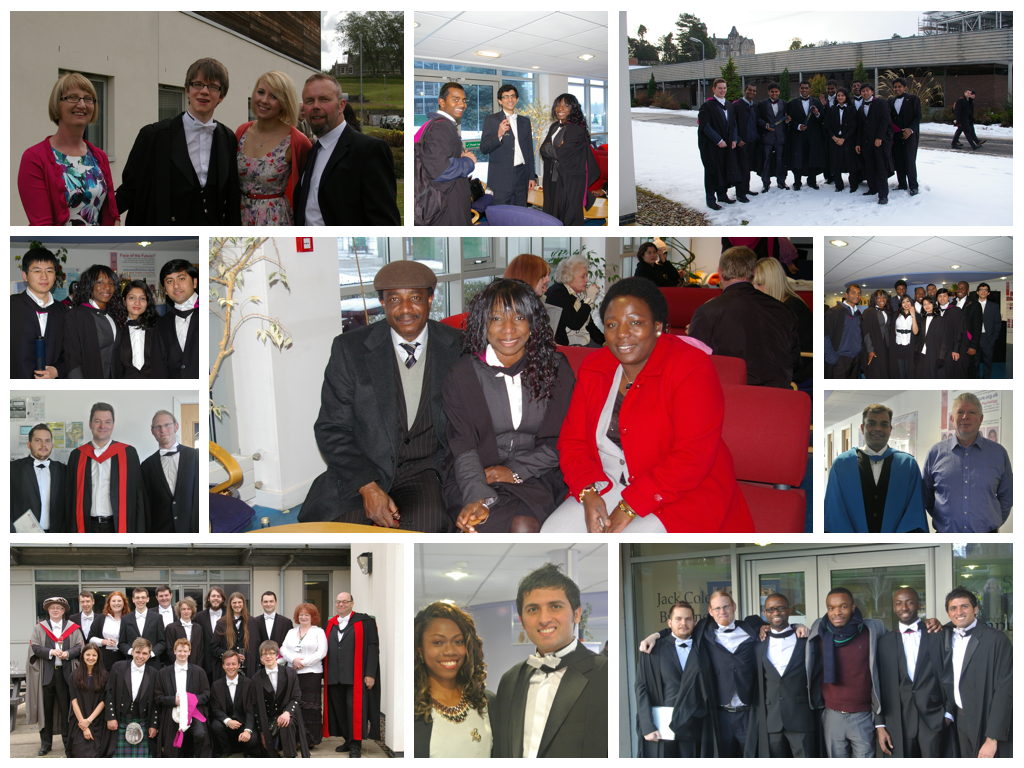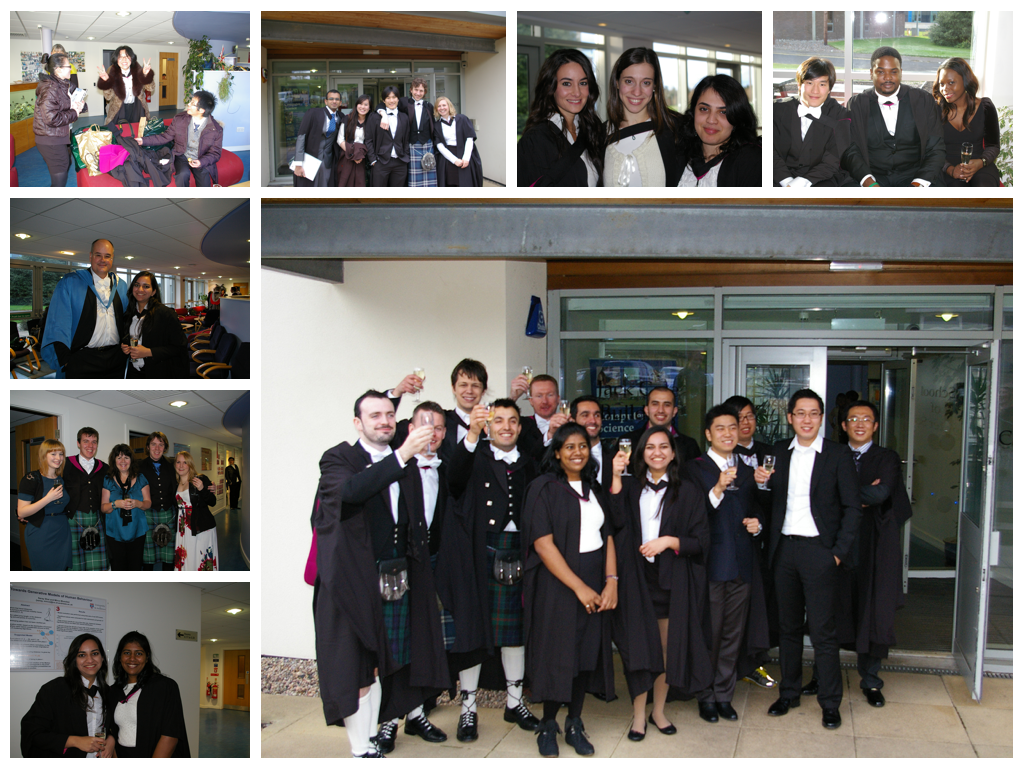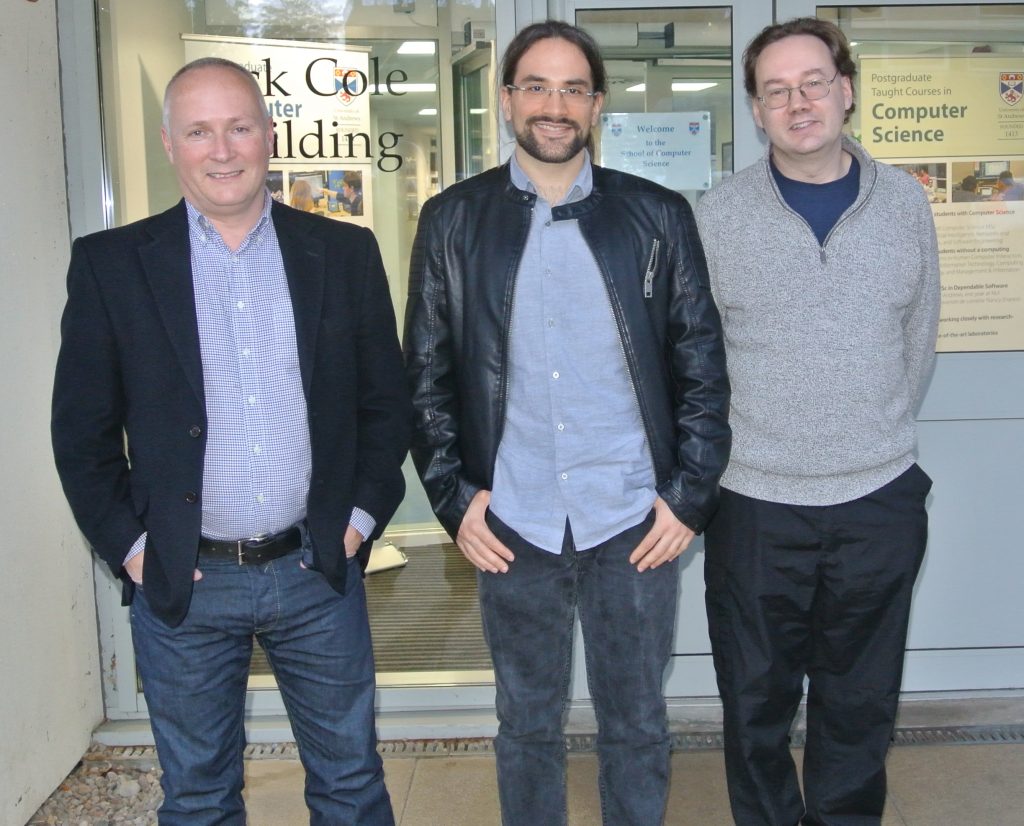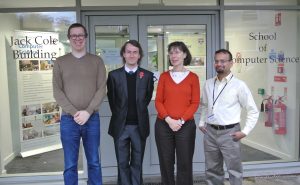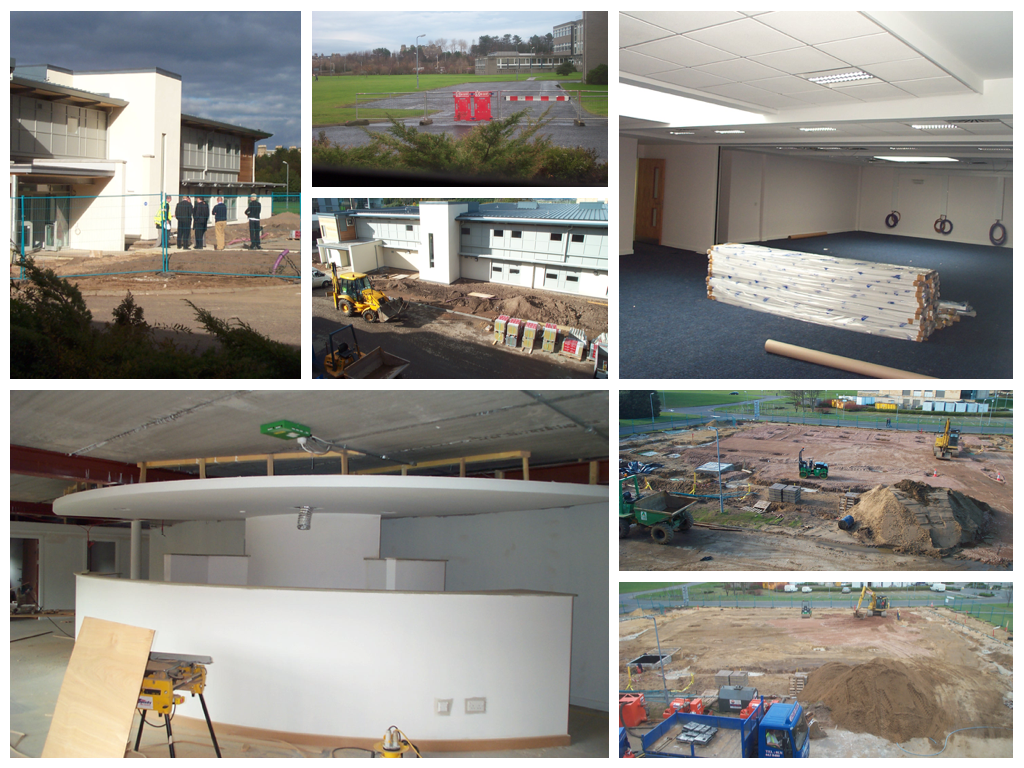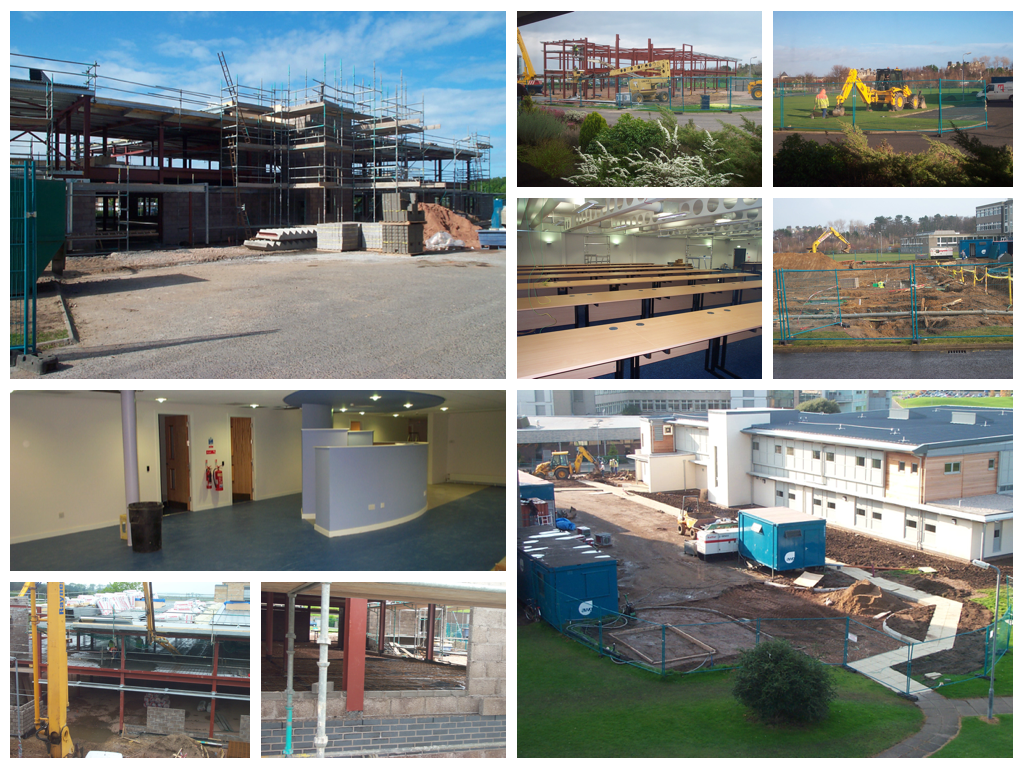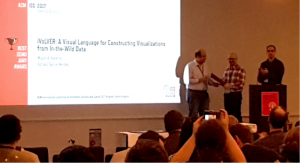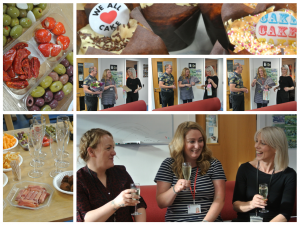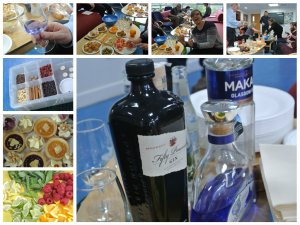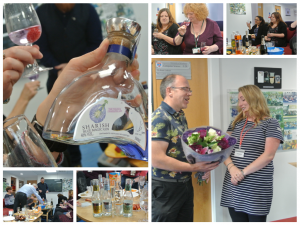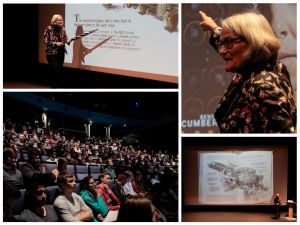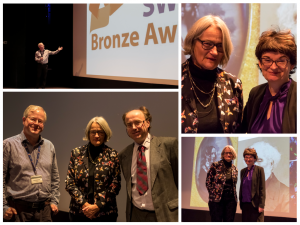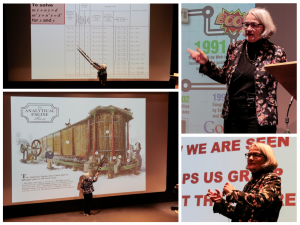We invite our graduating students and their relatives to join us next Thursday, between 12 and 3.30 in the Jack Cole coffee area, for a glass of fizz to celebrate graduation. We look forward to seeing you soon.
Author: lisa
Salesforce Graduate Opportunities
Alumni Paul Dobra will host a short session about Salesforce graduate opportunities on Friday the 8th December, at 11am in Jack Cole 1.33. Target audience MSc, MSci and Honours students.
Join us for Graduation: Thursday 7th December
The School will celebrate more student successes and accomplishments next week, when our recent MSc and PhD students graduate. We look forward to toasting their success at our graduation reception in the School of Computer Science, next Thursday afternoon, between 12 and 3.30. Over the years graduation has involved cakes, fizz, laughter, changeable weather and lots of reminiscing as pictured below. For family and friends who can’t make it to graduation ceremonies, the University broadcasts each graduation ceremony live.
PhD viva success: David Castro
Congratulations to David Castro, who successfully defended his thesis today. David’s thesis was supervised by Professor Kevin Hammond. He is pictured with Internal examiner, Dr Edwin Brady and external examiner Professor Graham Hutton, from the University of Nottingham.
PhD viva success: Adam Barwell
Congratulations to Adam Barwell, who successfully defended his thesis yesterday. Adam’s thesis was supervised by Professor Kevin Hammond. He is pictured with second supervisor Dr Christopher Brown, Internal examiner Dr Susmit Sarkar and external examiner Professor Susan Eisenbach from Imperial College, London.
One from the archives: Plans for new Computer Science building
November 2002, and plans were unveiled in the university news, for a new computer science building. Stages of the build were photographed for posterity.
Fast forward to March 2005, and the Jack Cole building was officially opened by the then First Minister, Jack McConnell. The building was named after the founder of Computer Science at St Andrews, Professor Alfred Jack Cole.
Computer Science Student Representatives 2017
Congratulations to our student representatives for 2017/8, elected by their peers last month. Our Reps are integral to the proactive communication channel between staff and the students and also chair and run the Staff-Student Consultative Committee (SSCC) held each semester within the School.
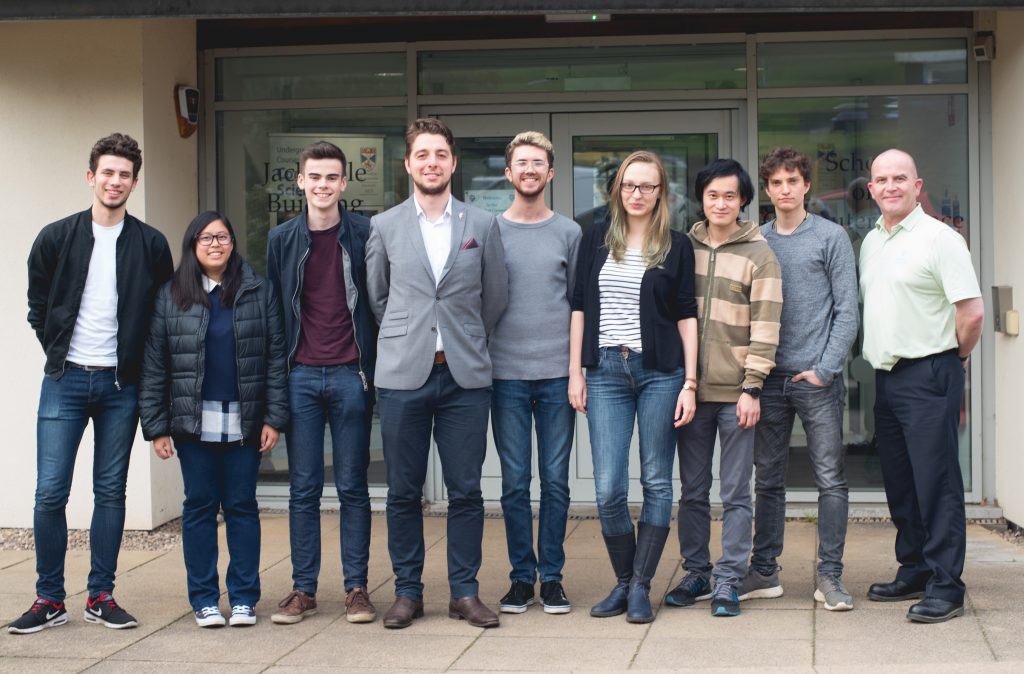
The reps are pictured outside the Jack Cole Building, after this semester’s SSCC meeting and are (from left to right)
- Lewis Mazzei (1st year, minutes)
- Beatrice Olivera (1st year, minutes)
- Jamie Bell (2nd year, careers)
- Gergely Flamich (School President)
- Arnold Haidu (MSc, library)
- Stacey Izmaylova (3rd year, social)
- Xu Zhu (PhD, Postgrad)
- Keno Schwalb (4th year)
- Paul McKay (Evening)
Image courtesy of Ula Rustamova
iVoLVER receives Best Demo Jury Award at ACM ISS
The iVoLVER system, created by Gonzalo Méndez and Miguel Nacenta from the SACHI group at the School of Computer Science, University of St Andrews, received Best Demo Jury Award at the ACM Interactive Surfaces and Spaces (ACM ISS) conference last week.
ACM ISS 2017, took place in Brighton, UK and selects a different location each year, with Tokyo, Japan selected as next year’s destination. The conference is a premier venue for research that studies how people interact in smart spaces and surfaces and how to design and engineer solutions for novel interfaces.
iVoLVER is a web-based visual programming environment that enables anyone to transform visualizations that they find in-the-wild (e.g., in a poster or a newspaper) into new visualizations that are more useful for them. Congratulations to the iVoLVER team. You can try out the open source iVoLVER prototype using a browser.
Ae fond farewell: Vicky Robinson
Vicky Robinson, a valued member of our admin team, has departed for pastures new. Vicky and colleagues are pictured earlier this month, enjoying some nibbles and fizz, to mark her last day. Staff also organised an informative and enjoyable Gin tasting courtesy of Luvians. Fare thee well Vicky, thanks for all the hard work, and have a fabulous new adventure in Cyprus.
Distinguished Lecture Series 2017: Professor Ursula Martin
On October 10th, we were delighted to welcome back Professor Ursula Martin from the University of Oxford, to deliver the semester one distinguished lecture series in the Byre Theatre. Earlier in her career Prof Martin was professor of Computer Science here, and in fact only the second female professor in the history of the University of St Andrews.
The lectures covered numerous aspects of the history of computing. A particular highlight was to hear about Ada Lovelace’s early work, on Ada Lovelace day. As a trained mathematician and computer scientist who has studied her papers in detail, Ursula has discovered new insights about Ada’s education and work with Charles Babbage. She also focussed on aspects of computing history that are often ignored, such as history of computing in countries other than the USA or UK. Another aspect was how, even today, the contribution of women in history is often ignored, which Ursula herself has been able to correct in some cases.
The well received lectures centred around what every computer scientist should know about computer history. Professor Martin is pictured at various stages throughout the lectures and with Head of School, Prof Simon Dobson, DLS Coordinator, Prof Ian Gent and Principal and Vice-Chancellor, Prof Sally Mapstone. Read more about Professor Martin and the individual lectures in what every computer scientist should know about computer history. Recordings of each lecture can be viewed at the end of this post.
Images courtesy of Ryo Yanagida.
Lecture 1- The Early History of Computing: Ada Lovelace, Charles Babbage and the early history of programming.
Lecture 2 – Case Study, Alan Turing, Grace Hopper, and the history of programming.
Lecture 3- What do historians of computing do, and why is it important for computer scientists today.
Lecture materials are available to University of St Andrews staff and students.


